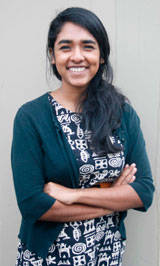I’m often found sitting in the back row of the council chambers of my city, listening to the council discuss local politics. I listen to committee presentations, public comments, special hearings and the chitter chatter of everyday city dealings. I watch officials construct, deconstruct and reconstruct policy that’s meant to enrich the lives of local residents.
One time I listened to a council talk about garbage for one hour. They talked about garbage. For. One. Hour.
I’m a 20-something-year-old learning very slowly how to be an adult. I didn’t realize how much garbage was involved in adulting.
But, more than learning that garbage matters, I’m learning what really makes a productive, healthy community.
I still haven’t wrapped my fingers around the golden answer, but I have learned this — there is a fine line between choosing what benefits you right now and what benefits the community in the long run.
As an unmarried millennial in the infant stages of adulthood, it is easier for me to think about the community as a whole and vote for measures and/or candidates who will benefit the entire city. If I were married and had little nuggets running around a house, my priorities would likely shift. I might be inclined to put my family’s well-being before my city’s.
I’ve observed council members and city officials grapple with the same dilemma. As public servants, they have to serve their residents and do what’s best for the city as a whole. However, as residents, they have opinions about what benefits them.
For example, is more economic development the answer for a vibrant city? Sure, it brings in more jobs and generates more revenue, but does it overlook the residents who are suffering the most? What about our moral obligation to provide for those who don’t have enough resources to thrive?
What’s the right answer? How do you prioritize the needs and wants of a diverse population? How do you take care of all the people you serve in the most responsible way?
I don’t know.
What I do know is this — a productive, healthy community is built upon people who care.
But people who care aren’t necessarily the only answer. They often butt heads and disagree and fail to keep the peace. Caring often blurs into crazy and incoherent. Perhaps that’s why we need democracy.
However it is people who care and who work tirelessly for the benefit of all residents who shape the heart of our communities. It is the people who sit in the tension of “what serves me” and “what serves all of us” who are able to make the tough-but-important decisions. Teachers, social workers, business owners, public servants, thinkers, doers, motivators and problem-solvers who resist apathy and dare to dream for a better tomorrow are the ones who are able to pave the way for that tomorrow.
Strong cities are built upon citizens who care.


